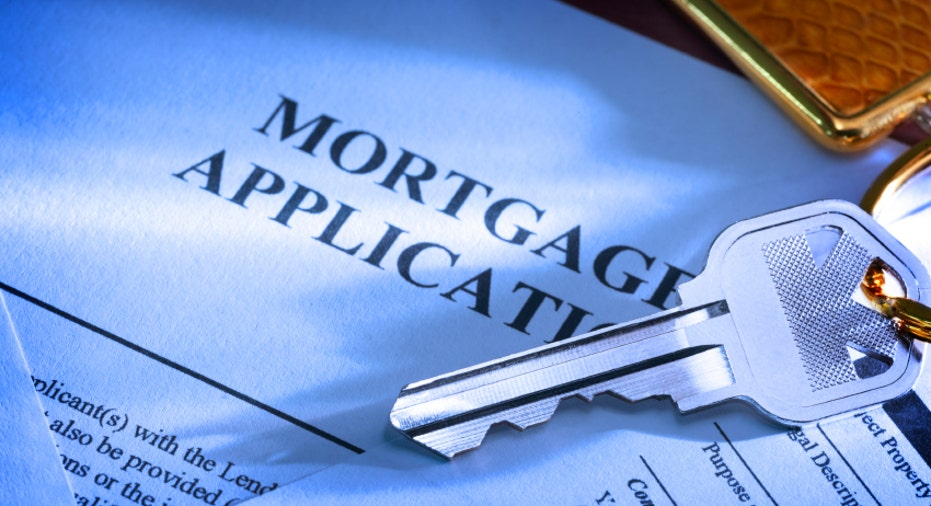Lock in Now or Risk Years of Regret

NEW YORK – If refinancing your mortgage has been on your to-do list, there's no time to waste anymore.
Mortgage rates have jumped to their highest in a year - hovering at close to 4% for a 30-year fixed mortgage. With house values rising, those who have waited to build enough equity in their homes to qualify may find the time is right.
If you are looking to buy a house, you should still consider yourself lucky, even though rates are no longer at rock-bottom. Jump on the right opportunity, brokers say, and as soon as you go to contract, lock in your rate and don't look back.
"I put them through immediately when I get a signed contract," says Ryan Minick, a mortgage adviser at LeaderOne Financial in Kokomo, Indiana.
Compare Mortgage Rates in Your Area
Most analysts think rates will continue to trend up. The rise may be gradual at first, but you never know with interest rates. So don't panic but have a sense of urgency, says Valerie Saunders, a mortgage broker in Tampa, Florida, and board member of the Association of Mortgage Professionals.
There is plenty of opportunity: there may be some 20 million current mortgages at rates above 4%, according to an estimate by Garth Graham, director of the Stratmor Group, a mortgage industry advisery firm.
The question, Saunders says, is: "If you have not already taken advantage of the low rates, what are you waiting for?"
This is what Stuart Ritter asked himself recently, when he realized that "refinancing the mortgage" had been sitting on his to-do list for a couple of weeks, and it needed to get done now.
A certified financial planner and vice president of T. Rowe Price Investment Services, Ritter is usually on top of things. He locked in his rate at 4% on Thursday, and is confident that he will be able to have it all wrapped up within the 30-day period his rate is valid.
DO YOU GAMBLE?
Ritter's job is to get people to look at the big picture on things like retirement and college savings, and he takes the same view for his own finances.
"I could ask myself why didn't I get 3.75%, but 4% is better than 4.875, so I'm happy," Ritter says.
Yet mortgage brokers say some of their customers are a little less satisfied these days, especially since rates have crossed that 4% barrier going the other way.
"Some people call every day, multiple times a day, trying to get the best possible rate," says Minick, who also runs the website the2mortgageguys.com.
Right now the only way to get a rate below 4% might be to pay for it - lenders might charge 1% of the loan amount to lower a rate from 4% to 3.75. On a $100,000 mortgage, that would cost $1,000, but the difference in the payments between those two rates would be just $14.30 a month. Over the long run, a higher rate may be cheaper.
"Some people know that a neighbor got 3.25 rate, and if they end up with a 4.25 rate, they feel taken advantage of. But don't compare to your neighbor. Look at your own financial picture, and see if you're saving money," says Saunders.
Ritter says knew he found the rate he wanted when he called other lenders shopping around and nobody else would match it.
HOW LONG TO LOCK
If you are getting into the process at this volatile rate moment, one question to consider is how long to lock in your rate. The various increments - from 30 to 90 days, with extensions - could cost you a different amount at each lender.
Frank Donnelly, a mortgage broker and certified financial planner who is chair of the Mortgage Bankers Association of Metropolitan Washington, DC, usually does a 60-day lock for new purchases and refinances, if the lender offers that amount at no fee.
Customers worried about paperwork not going through quickly may want to consider a 90-day lock, or extensions, for which a lender might charge an eighth or a quarter point. The gamble is that if you come to the end of your lock period and you're not ready to close, you will have to take rates as they are at that moment. In today's environment, the likelihood is that they'd be higher.
If you think rates are high now, and that they might drop before you close, choose a lender that has a float-down policy, Donnelly says. This would allow you to change the rate if it goes down during the process. "Most lenders don't volunteer it, so you have to ask, and some charge and some don't," he says.
REFI NOW, AND LATER
When in doubt, refinance now, and if rates drop again, just refinance again, Donnelly says.
"Many lenders will offer zero-cost refinancing. If rates do fall again, you can do another no-cost refinance," says Donnelly. "It's very simple, nothing complicated."
This is what T. Rowe's Ritter has been doing for the past five years. This latest refinance is his third - he started at 6% and has dropped down incrementally. He says, "If rates drop down again, I can just refinance again."



















